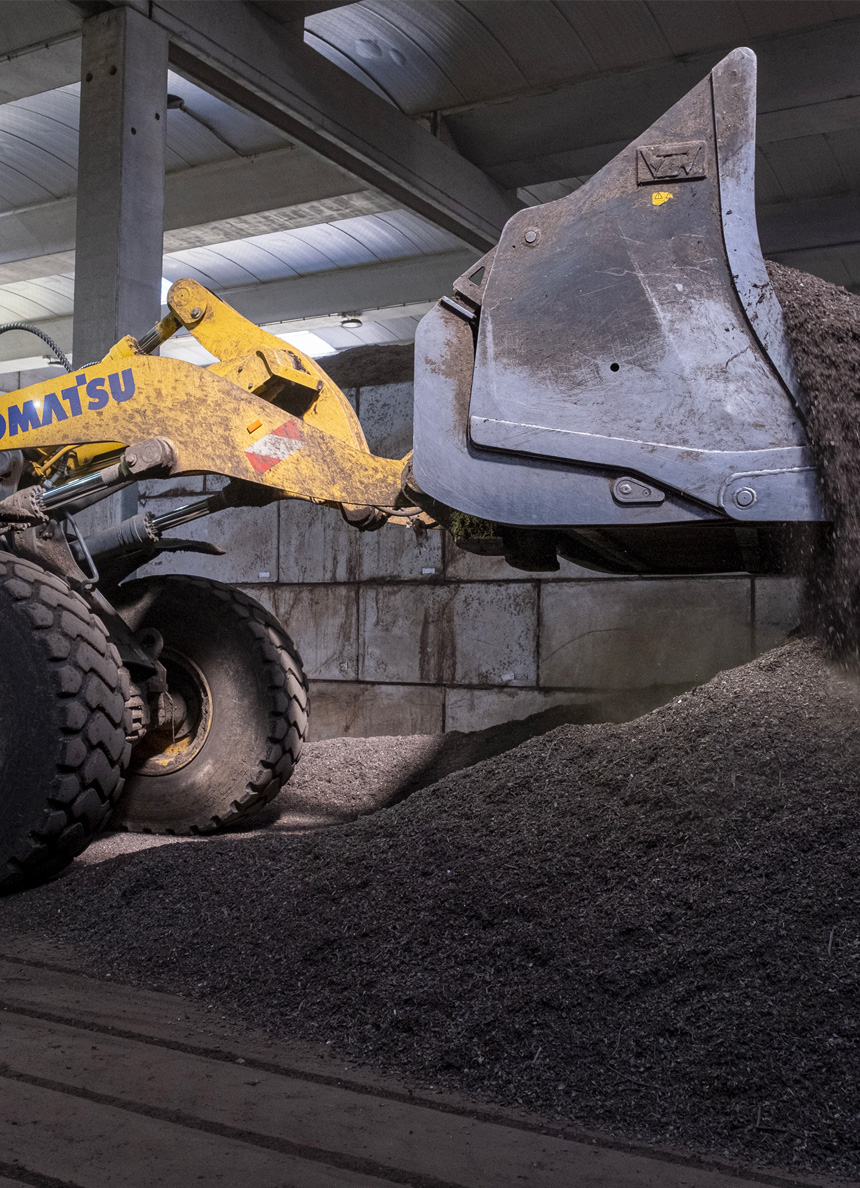Through composting, we valorize organic waste, transforming it into compost, a stable and sanitised organic fertilizer with soil conditioning properties, used in agriculture and horticulture.


Our plants manage tonnes of organic waste from which we produce renewable energy and compost.
Composting replicates the natural decomposition process of organic matter. This way, organic waste transforms into compost, a valuable resource for agriculture.
In our plants, we transform organic waste from different sources – from municipal collection to agro-industrial waste, grass cuttings and pruning waste, municipal sewage sludge – into a high-quality composted organic fertilizer that provides organic matter to soils and improves their structure.
Before being sent to the processing stages, waste is subjected to pre-treatment operations necessary to remove impurities and foreign materials.
Composting is a controlled process that valorizes the organic fraction of waste, transforming it into compost for agriculture and horticulture. Before reaching this result, organic waste goes through three main stages.